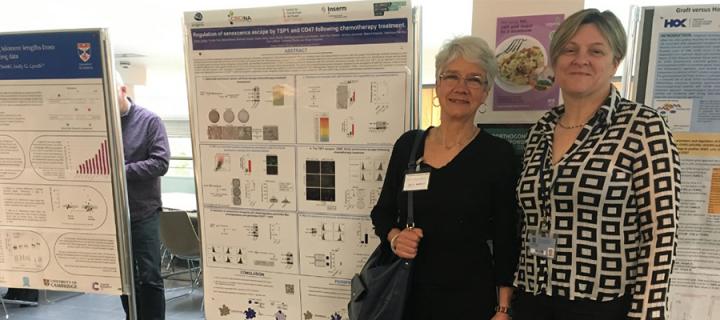Senescence Symposium 2019
Biomedical scientists gather in Edinburgh for Senescence Symposium: May 2019

On 10 May, over one hundred PhD students, postdoctoral researchers and group leaders attended Senescence Symposium 2019 at the MRC Institute of Genetics and Molecular Medicine. The event - organised and hosted by Chancellor’s Fellows Tamir Chandra of the MRC Human Genetics Unit and Juan-Carlos Acosta of the Cancer Research UK Edinburgh Centre - provided an opportunity for attendees to present their research on senescence, a state in which cells can no longer divide.
The Symposium, which was sponsored by Edinburgh-based investment management firm Bailie Gifford, attracted biomedical scientists from across the UK and Europe including France, Germany and Spain. Participants were able to use this relaxed and welcoming forum to discuss their work and network in advance of the International Cell Senescence Association Conference in Athens this September.
The Symposium was opened by MRC Human Genetics Unit Director Professor Wendy Bickmore before attendees presented abstracts throughout the remainder of the programme and continued discussions during the poster sessions, building valuable connections ahead of the upcoming conference. Also speaking were Jesus Gil, Imperial College London and Stuart Forbes, University of Edinburgh.
Participants then heard from keynote speaker Masashi Narita, group leader at the Cancer Research UK Cambridge Institute, who discussed gene regulation in senescence.
Sue Armstrong, broadcaster and author of Borrowed Time: The Science of How and Why We Age, attended and presented Susana de Barros Gonçalves with the award for Best Poster.
To me, there were two main messages that reinforced each other. There were exciting results on the effects of senolytic drugs that eliminate senescent cells, but at the same time, results on the increasing complexity of the senescence response made clear that more mechanistic work has to be done for safe and effective intervention.

